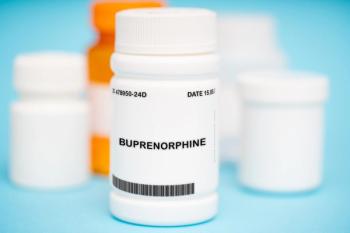
Pharmacist loses license following DEA raid
At 5:00 a.m. one April morning last year, agents of the Drug Enforcement Administration and some sheriff's deputies burst into Scherer's Medical Clinic, a pain management center in Slidell, La., near New Orleans. Additional raids that day at area clinics and pharmacies led to the arrest of Scherer's owner, a nurse named Cookie Armstrong, and three staff doctors. All were charged with running narcotic pill mills. Twenty-three patients were also arrested over the next few days.
Among the raided pharmacies were two owned by Michael Hebert, R.Ph., a well-known local pharmacist. One was a Medicine Shoppe franchise and the other was a cash-only pharmacy, Michael's Discount Pharmacy. Hebert was never charged with a crime, but following an investigation by the Louisiana pharmacy board, he lost his license for six months, is on license probation until October 2016, and was hit with more than $65,000 in fines. He is also "permanently prohibited from owning or operating a pharmacy" in Louisiana, according to the consent agreement he signed with the board.
Hebert was punished for lack of proper DEA registration, improper record-keeping, improper storage and inventory of controlled dangerous substances (CDSs), improper prepackaging and misbranding, and audit discrepancies, according to the agreement. He was also charged with improper transfer of CDSs between the two pharmacies he owned.
That is because, according to DEA, a prescription that is not written for a legitimate medical purpose is not considered valid. So an R.Ph. who knowingly dispenses such an Rx is subject to criminal and civil penalties.
"It all comes down to DEA trying its hardest to control what it views as illegal drugs," said Hebert. "But it dropped the corresponding responsibility charge because it had no evidence that I did anything wrong. I shipped Schedule II drugs between my two pharmacies and didn't keep complete records. That was all."
That was enough to get him in serious trouble, especially if either pharmacy lacked proper DEA licensure and if he failed to keep careful records, said Ronald Buzzeo, R.Ph., chief regulatory officer for BuzzeoPDMA, a pharmacy regulatory compliance consulting firm in Richmond, Va. Buzzeo was deputy director of DEA's Office of Diversion Control from 1982 until 1990.
"The DEA regulations on proper record-keeping and facility licensing are precise and very strict," said Buzzeo. "It is easy to get caught in a failure to meet those requirements."
State boards are indeed responsive to the concerns of DEA, said Carmen Catizone, executive director, National Association of Boards of Pharmacy. In more than 22 states, pharmacy boards serve as State Controlled Substances Authorities and are therefore responsible for gathering and distributing controlled substance information and trends.
Some boards also help administer Rx-monitoring programs. "I have not heard from the boards that there's been an increase in investigating pharmacists who fail to meet their corresponding responsibility obligations," said Catizone. "I do know that DEA informs all boards of its activity and encourages them to act concurrently."
Hebert said the DEA and pharmacy board made "strong efforts" to implicate him criminally in Armstrong's operation. He said that was in part because Armstrong ran a cash-only pharmacy. "Because I ran a cash-only pharmacy too, and because people were getting their scripts filled at my pharmacies, they concluded that I had to be in cahoots with her, even though they couldn't find any evidence," he said.
Newsletter
Pharmacy practice is always changing. Stay ahead of the curve with the Drug Topics newsletter and get the latest drug information, industry trends, and patient care tips.























